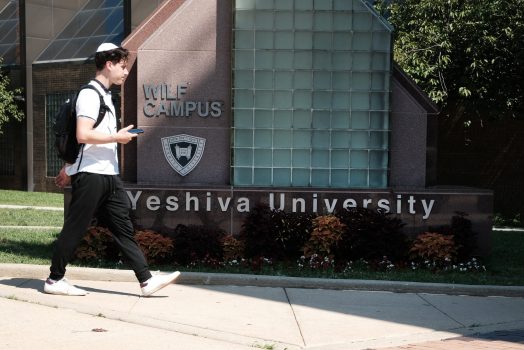
A years-long battle over the presence of an LGBTQ+ student group at Yeshiva University in New York City has been settled, and there’s good news: The group will be allowed to exist and receive official recognition.
Four years ago, members of the group, then called Yeshiva University Pride Alliance, sued after officials at the college, which is an Orthodox Jewish institution, refused to recognize the club, citing a legal principle known as the “church autonomy doctrine.”
New York City has a strong human rights law, and members of the club argued that the university’s refusal to recognize the group ran afoul of it. They subsequently filed a lawsuit in New York state courts.
In October of 2022, Americans United, the American Civil Liberties Union and the New York Civil Liberties Union filed a friend-of-the-court brief supporting the student group. As AU noted on its website, “[T]he church autonomy doctrine is a narrow one and does not apply here. While it prohibits courts from wading into a religious institution’s religious disputes, it does not bar courts from applying anti-discrimination laws to religious institutions. We further highlighted how, if adopted, the University’s argument would create a general opt-out for all sorts of religious institutions from a wide range of laws, especially anti-discrimination laws.”
Under the terms of the settlement, the club will change its name to Hareni, a Hebrew term that means “I hereby.” But most importantly, it will enjoy the same rights and privileges as other student-run campus clubs.
Religious colleges and universities generally have the right to determine their own policies, but there must be reasonable limits to that. Chiefly, these policies must not cause harm to others. Blanket exceptions from secular anti-discrimination laws threaten the rights of students, faculty and staff.
Such exemptions go too far. In this case, the settlement strikes the right balance.